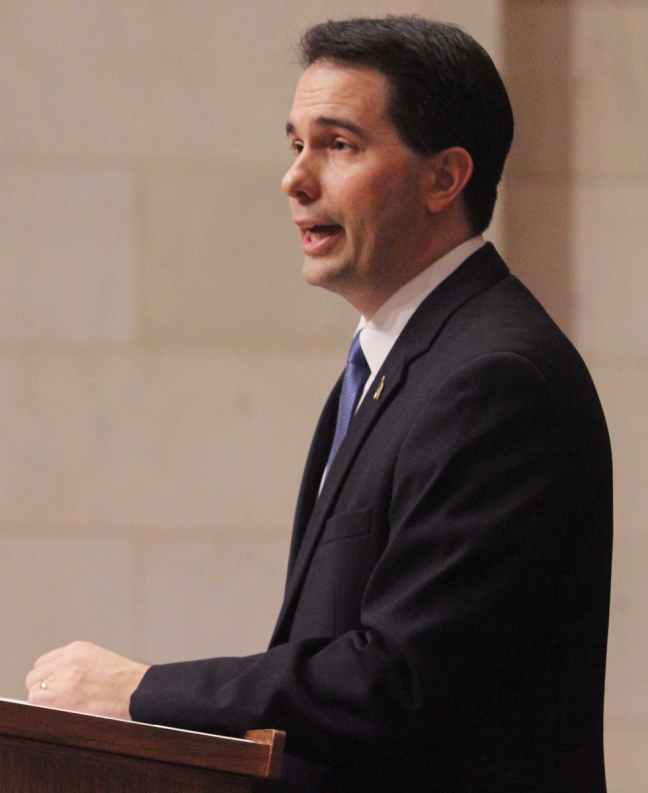Gov. Scott Walker signed his Wisconsin Works for Everyone Welfare Reform Package into law Monday with hopes of providing the training and assistance necessary to those reentering the workforce and getting back on their feet.
Additional reform under this package includes increasing work requirements for food stamps from 20 to 30 hours per week, prohibiting anyone from receiving food stamps or Medicaid benefits if their home value is worth double the median value or their vehicles are worth more than $20,000, and drug screenings for welfare recipients, among others.
“We want to help those in need move from government dependence to true independence through the dignity of work,” Walker said in a statement. “We believe welfare should be more like a trampoline and less like a hammock.”
Walker hopes to address the shortage of workers in Wisconsin with this package, with unemployment at a record low 2.9 percent.
As Wisconsin overhauls welfare programs, UW offers new anti-poverty solutions
Speaker and Assembly author of the legislation Robin Vos, R-Rochester, said in a statement that these laws will promote accountability, encourage personal responsibility, prevent fraud and abuse, and — most importantly — give people another opportunity at finding work.
“I want to thank Governor Walker for helping lead this historic effort. I look forward to seeing the full implementation of these groundbreaking reforms,” Vos said.
Gov. Scott Walker proposes ‘ambitious’ agenda for 2018 in annual address
Democrats — who lacked the votes to prevent the bill from passing — expressed concerns the legislation will cost the state millions and make it more difficult for those in poverty to get assistance.
Chair of the Democratic Party of Wisconsin Martha Laning said in a statement that these policies will only hurt Wisconsin families and pit Wisconsinites against one another.
“Walker has made his priorities clear: he wants to please his wealthy donors and special-interest funders at any cost to Wisconsin families,” Laning said. “Wages are stagnant, our classrooms are underfunded, our roads are in desperate need of repair and poverty is at a 30-year high, yet Walker chooses to enact these nasty policies that will leave children hungry and drive more Wisconsinites into poverty.”
Walker hopes to lead the nation in welfare reforms and make an impact on the state, as he is up for re-election later this year.














